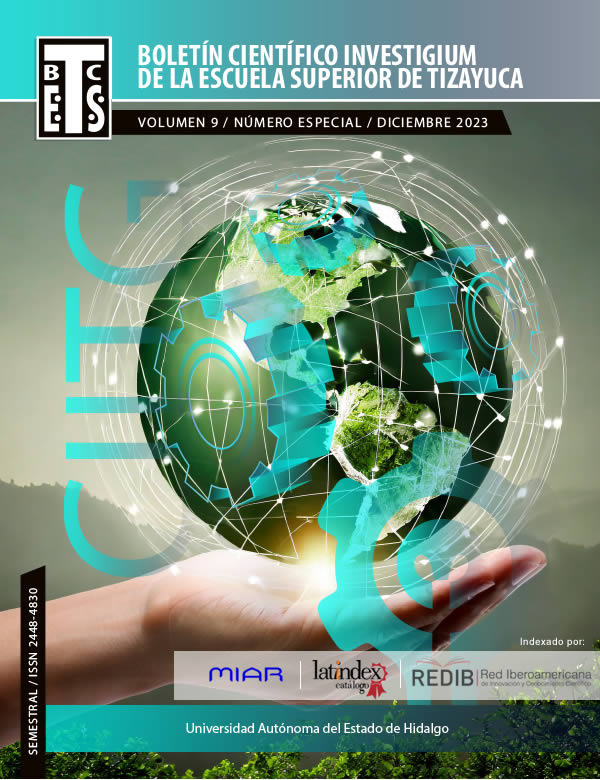Tourism and Communality: Local Development Paradigm in the El Geiser Spa in the State of Hidalgo, Mexico.
Abstract
The present investigation has the objective of analyzing and describing the strategies incorporated by the inhabitants of the Uxdejhe community in the Municipality of Tecozautla in the State of Hidalgo in Mexico, to implement a process of community work based on a solidarity, equitable and self-management organization. , starting from the dynamics of tourism as an alternative for local development, oriented to the use of natural heritage as a resource for common use, from the transformation of local actors to adapt from ejidatarios to service providers by constituting the Spa called El Geiser, as a sustainable tourism project, which is precisely fed by the thermal waters that emanate from a Geyser located in this ejido, which favors its positioning with visitors, based on the particularities and healing properties as a hydrothermal phenomenon with mineral components. The foregoing, approached from the theoretical perspectives of communality and the social economy, with which the principles of collective property, distribution of tasks and agreed responsibilities, relationships of trust and equality are enunciated and demonstrated, all of this, as significant pillars that regulate the processes and productive composition, aimed at achieving common welfare. The methodology used is qualitative, under an exploratory and descriptive approach based on a transversal design, considering the foundations of ethnography. It is concluded that tourism from a community and inclusive perspective consolidates local benefits by promoting family contribution and participation as multidisciplinary options to give continuity to indigenous identity and rural roots for collective development.
Downloads
References
Acheson, James M. 1991. “La administración de los recursos de propiedad colectiva.” En Antropología Económica, editadopor Stuart Plattner, 476-520. México: Patria.”
Alburquerque, F. 2004. El Enfoque del Desarrollo Económico Local. Organización Internacional del Trabajo (OIT) Buenos Aires, Argentina.
Archivo Agrario Nacional. 2016. “Ejido Uxdejhe, Tecozaultla n.º 10595.”
Beni, M. C. 1997. «Política e Estrategia de Desenvolvimento Regional. Planejamento Integrado do Turismo». En: A. Balastreri Rodrígues. (Org.), Turismo e Desenvolvimiento Local, (Vol. 1). pp. 79-86. Hucitec. São Paulo, Brasil.
Coleman, J. S. 1990. Founditions of Social Theory. Cambridge: Harvard University Press.
CONAPO, 2020. Consejo Nacional de Población https://www.gob.mx/conapo
Díaz, F. (2007). “Comunidad y comunalidad”, en Sofía Robles Hernández y Rafael Cardoso Jiménez (comps.) Floriberto Díaz Escrito.
Comunalidad, energía viva del pensamiento mixe. Ayuujktsënää´yën ayuujkwënmää´ny ayuujk mëk´äjtën, Colección Voces Indígenas.
UNAM/Programa Universitario México Nación Multicultural, México.
____________(2003). Comunidad y comunalidad. In: Rendón, J. Comunalidad: modo de vida comunal entre los pueblos Indios. Colección Cultura Indigena, Consejo Nacional para la Cultura y las Artes (CONACULTA). Dirección General de Culturas Populares. México,
Flores, M. y Rello, F. 2001. “Capital social: virtudes y limitaciones”. Ponencia presentada en la Conferencia Regional
sobre Capital Social y Pobreza, cepal, Santiago de Chile, 24 al 26 de septiembre 24-26.
INEGI (2020). Instituto Nacional de Estadística y Geografía. https://www.inegi.org.mx/programas/ccpv/2020/
Korsbaek, L. (2009) "El comunalismo: cambio de paradigma en la antropología mexicana a raíz de la globalización". Argumentos,
(59), enero-abril, Universidad Autónoma Metropolitana Xochimilco
URL:http://redalyc.uaemex.mx/src/inicio/ArtPdfRed.jsp?iCve=59511412004 (Consulta: 05/07/2022).
Kotler, P. 1997. Mercadotecnia para hostelería y turismo. Editorial Prentice Hall. México.
Maldonado, B. (2010). Comunidad, comunalidad y colonialismo en Oaxaca. México. La nueva Educación Comunitaria y su contexto.
Universidad Leiden.
________¬(2002). "Autonomía y co¬munalidad india. Enfoques y propuestas desde Oaxaca". Centro INAH Oaxaca, Secretaría de Asuntos Indígenas del Gobierno de Oaxaca, Coalición de Maestros y Promotores Indígenas de Oaxaca A.C, Centro de Encuentros y
Diálogos Interculturales, Oaxaca.
Melucci, A. (1999). Acción colectiva, vida cotidiana y democracia. El Colegio de México (COLMEX). México, D. F.
Montes, A. (2004) “La reconstitución de los pueblos indígenas”. Cultura indígena. Diálogos en la acción, segunda etapa. Consejo
Nacional para la Cultura y las Artes, Dirección General de Culturas Populares e Indígenas, México D. F.
Ortiz, T. 2009. Bordando paradigmas para el desarrollo: metodología para abordar el turismo rural desde el sujeto social. México: Universidad Latina
Regino, A. 1998 La reconstitución de los pueblos indígenas, en: Autonomías étnicas y Estados nacionales, M.Bartolomé y A.Barabas
(Coords.). México:INAH.
Rendón, T. (2003) .Trabajo de hombres y trabajo de mujeres en el México del siglo XX. México, CRIM-PUEG- UNAM. México.
Reséndiz, J. G. 2008. “Recursos hídricos como motor del desarrollo ¿organización o contaminación?: en el caso de Tecozautla, estado
de Hidalgo, de 1989 a 2007.” Tesis de maestría, Instituto Politécnico Nacional. México.
Sader, Elder. 1990. “La emergencia de nuevos sujetos sociales.”
Nuevos Sujetos Sociales: Revista Acta Sociológica iii (2): 58-87.
Silva, I. (2003): Disparidades, competitividad territorial y desarrollo local y regional en América Latina, serie Gestión pública, Nº 33, LC/L.1882-P, Santiago de Chile, Comisión Económica para América Latina y el Caribe (CEPAL), abril. Publicación de las Naciones Unidas, Nº de venta: S.03.II.G.4
Torres. G. 2012. “El ejido posrevolucionario: De forma de tenencia sui generis a forma de tenencia adhoc.” Península 7 (2): 69
Zemelman, H. Valencia, G1990. “Los sujetos sociales: una propuesta de análisis.” Nuevos Sujetos Sociales: Revista Acta Sociológica iii (2): 89-104.
Copyright (c) 2023 Cristina Flores Amador, Alma Rafaela Bojórquez Vargas, Ernesto Bolaños Rodríguez, Francisco Joaquín Villafaña Rivera

This work is licensed under a Creative Commons Attribution-NonCommercial-NoDerivatives 4.0 International License.











